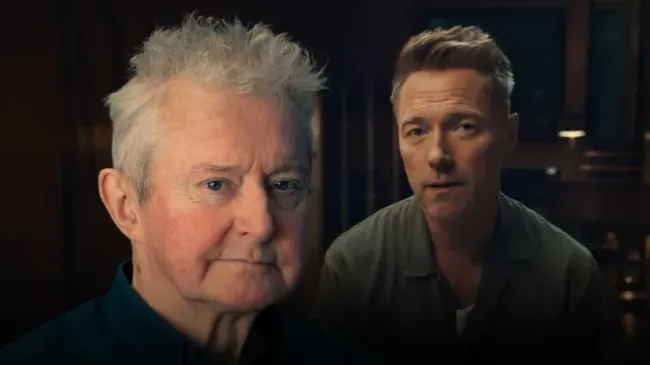Louis Walsh and the Speculation About His Sexuality: Career, Privacy, and Public Perception
Louis Walsh, the iconic Irish music mogul and X Factor judge, has long been the subject of speculation regarding his sexuality. Despite decades in the public eye, Walsh has consistently kept his personal life private, leading to ongoing rumors and intrigue. This article examines the whispers surrounding his sexuality, his responses, and how his career intersects with broader cultural shifts in LGBTQ+ representation.
Louis Walsh, the well-known Irish music mogul and X Factor judge, has been a fixture in the entertainment industry for years. Despite his fame, his personal life—especially the ongoing speculation about his sexuality—has remained largely private. This article explores the rumors, his responses, and the cultural context surrounding his career.
- Louis Walsh’s Evasion of Personal Questions
Walsh has consistently avoided discussing his sexuality, refusing to engage with rumors about his personal life. In a 2013 interview with The Sunday Times, when asked about the topic, he firmly responded, “Don’t go there. I think your private life is your private life… I’m happy. Happy as Larry!” This approach has defined how he handles personal questions, even as the speculation continues.
In 2024, during his appearance on Celebrity Big Brother, Walsh continued his playful deflection, turning the tables on interviewers with a humorous remark: “Are you really straight? I thought you might be gay!” This blend of humor and evasion highlights his desire to keep his personal life separate from his public image.
- The Influence of Industry Pressures and Stephen Gately’s Story
Walsh’s career is also connected to a significant chapter in pop culture history—the forced outing of Boyzone’s Stephen Gately in 1999. Walsh admitted to fabricating heterosexual stories to protect Gately’s career, fearing that revealing Gately’s sexuality would alienate fans. Walsh recalled, “He was dreading he was going to be outed,” but after Gately was exposed by The Sun, he found unexpected acceptance.
This story reveals Walsh’s awareness of the homophobic atmosphere in the music industry during the 1990s. While his actions were controversial, they shed light on the challenges LGBTQ+ artists faced at the time. They also prompt reflection on Walsh’s own experiences with secrecy and the pressures of public perception.
- Rumors, Feuds, and Public Image
Speculation about Walsh’s sexuality has been fueled by others, including his X Factor colleague Simon Cowell, who once teased Walsh about his reaction to a male singer’s audition, further sparking rumors. Additionally, Walsh’s lack of publicly known relationships—except for a playful “marriage” to Caroline Flack in 2012—has kept the gossip alive.
Walsh’s public feud with Boyzone’s Ronan Keating also complicates his image. Keating accused Walsh of jealousy and disrespect, while Walsh dismissed him as a “manufactured pop star.” These professional clashes often crossed into personal territory, adding another layer to the public’s perception of Walsh.
- The Changing Landscape of LGBTQ+ Representation
Walsh’s career spans a time when LGBTQ+ visibility in the music industry was met with significant challenges. The contrast between the forced outing of Gately and today’s more inclusive environment highlights the progress made. Walsh himself acknowledged that Gately’s coming out was ultimately “the best thing for him… he was free.” However, Walsh’s own silence stands in stark contrast to the openness embraced by many contemporary artists.
This duality reflects broader societal shifts: Walsh represents an era of secrecy, while the industry has become more accepting. His story is a reflection of the tension between fame, privacy, and identity in pop culture.
- Respecting Privacy in a World of Speculation
The intense focus on Walsh’s sexuality points to a larger issue: the public’s sense of entitlement to celebrities’ personal lives. While curiosity about public figures is natural, Walsh’s insistence on privacy deserves respect. As he once said, “Your private life is your private life.” In a world of oversharing, his decision to remain private is both an act of defiance and a firm boundary.
Conclusion
Louis Walsh’s career is marked by success, controversy, and unanswered questions. His sexuality, whatever it may be, remains a well-guarded secret. His story reminds us that public figures have a right to privacy, even when they live in the spotlight. As an audience, the most respectful approach is to appreciate his professional legacy while honoring his choice to remain silent about his personal life.
